Resilience in the Fields: Galilee Institute's Ladies Step Up During War
While Israel is at war, people are all trying to help in all different ways. One part of the country’s economy under the most pressure is the agricultural sector.
Ordinary Israelis bravely put aside their everyday life, work and families to support this pillar of our country. Two members of Galilee Institute’s staff are doing just this, and we devote our spotlight to them.
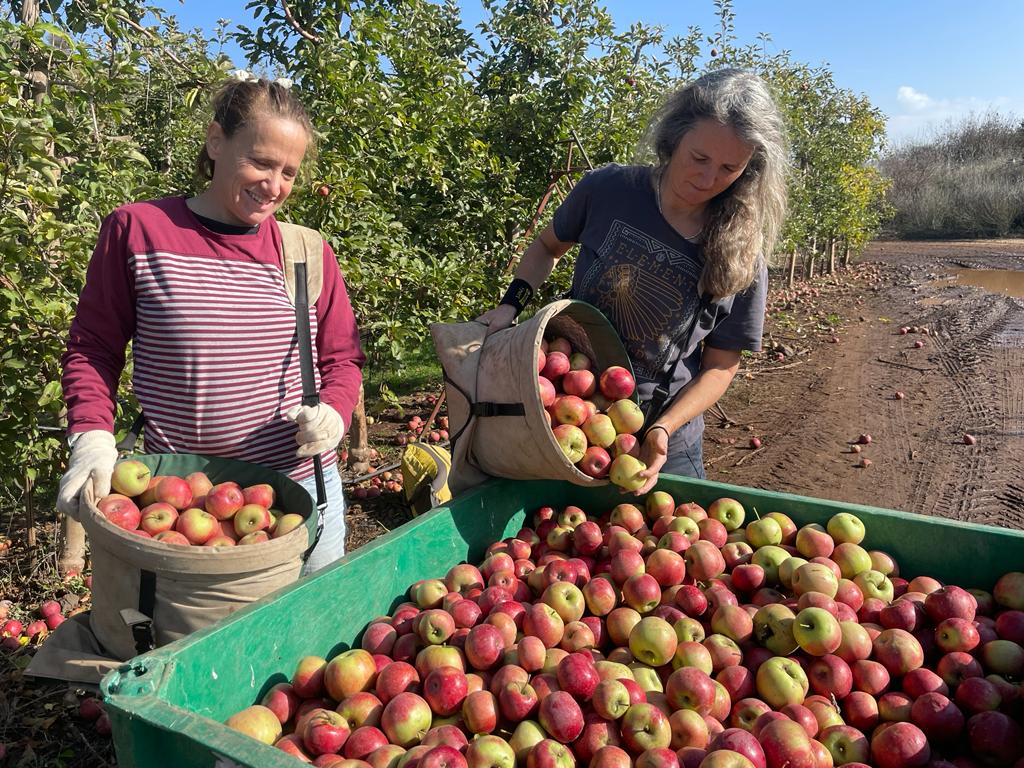
Outbreak of War and Disaster Strikes
The Israel-Hamas war broke out on 7 October 2023 after the brutal attack on Israeli civilians and army bases on the Gaza border by the Hamas terrorist organization.
It plunged Israel’s agricultural belt, located around the Gaza Strip into crisis. The attack and ongoing conflict have caused significant damage to farms and infrastructure, disrupted supply chains, and led to a critical shortage of agricultural workers.
Before the attack, many farm workers in this region were from Thailand, and the attacks sadly resulted in the deaths, injuries, and abductions of many of them. The survivors were simply too afraid to return to work in the area. The entry of other workers from Gaza itself and the West Bank was suspended as soon as the attack took place. Many farm managers and workers were also drafted into emergency army reserve service and the combined result was a severe lack of labour.
The northern areas of Israel, close to the Lebanese and Syrian borders, were also hit by a lack of manpower as many foreign workers decided to leave the country.
Resilience and Generosity
Amid chaos and devastation, Israeli civil society displayed remarkable resilience in the face of a tragedy of unprecedented dimension, swiftly mobilizing within days. Volunteers organized rapidly, while donations poured in from both Israel and international supporters. Ordinary citizens, in an outpour of generosity, tirelessly provided vital assistance to soldiers and displaced families from the south and later the north, ensuring they had the resources to respond to this tragedy and the immediate serious threat to the nation's security.
While many of Galilee Institute's dedicated staff have made invaluable contributions to these efforts, we would like to highlight the efforts of two individuals whose commitment and impact have been truly exceptional.
Lesson of Passion and Courage
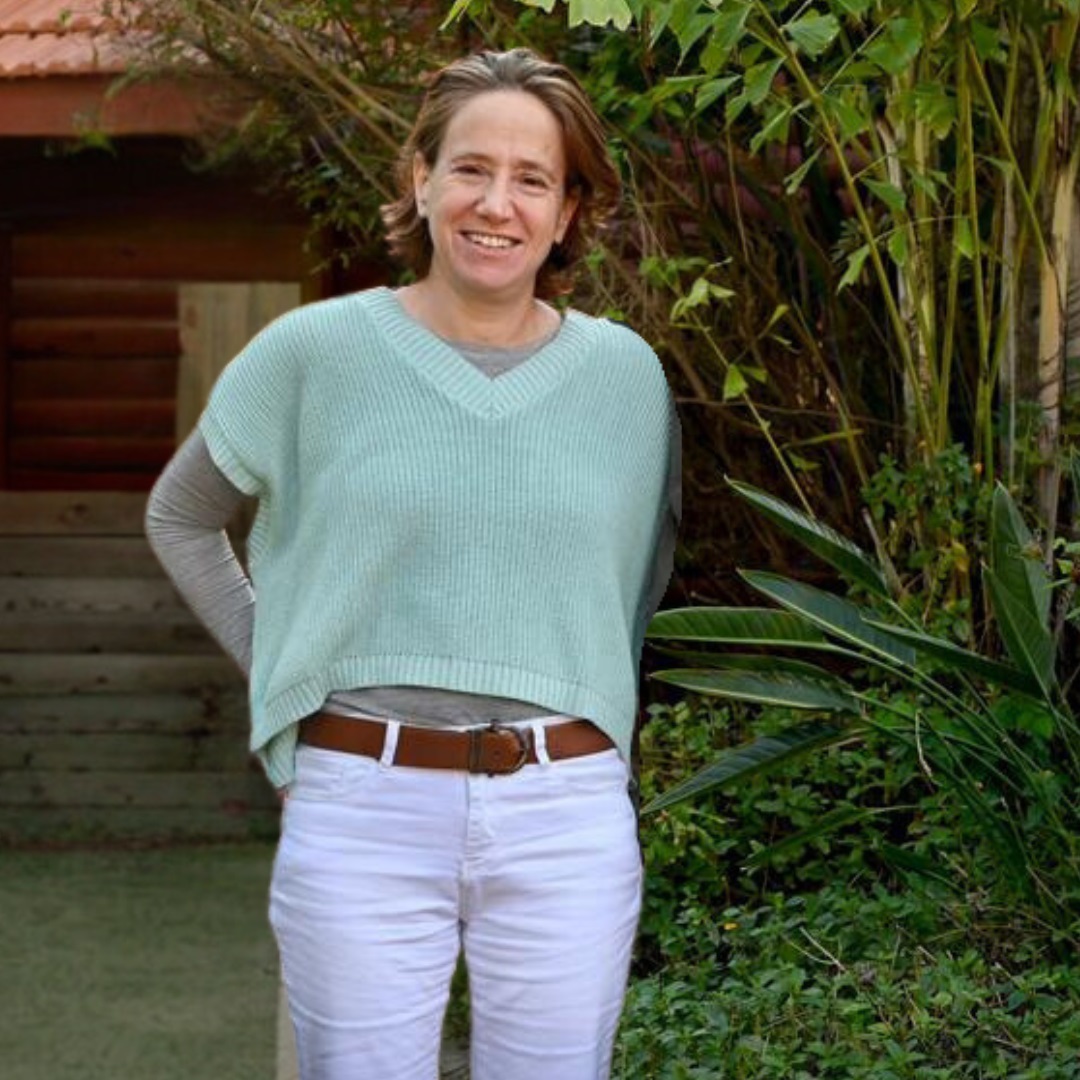
Shiri Salant is our Academic Coordinator in the Programme Development Department. She is married to Amir and the mother of 3 teenagers. She lives in Kibbutz Ein Harod not far from Afula and has been an active member of the kibbutz movement all her life. Shiri is our expert on Agriculture, Environment & Water training programmes at GIMI. She knows our lecturers and instructors well, designs course content and selects the best study tours to the most interesting and innovative agricultural sites in Israel.
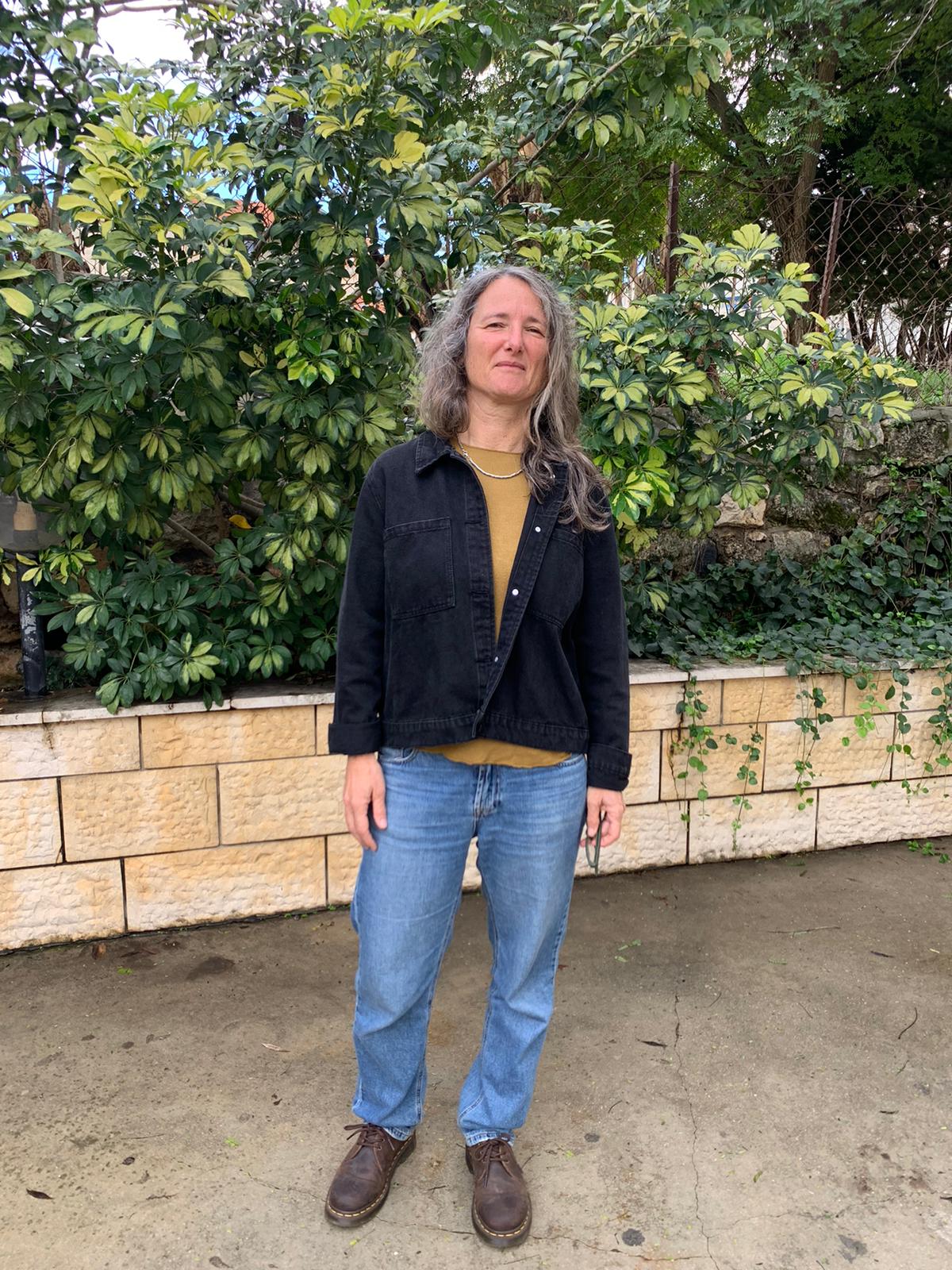
Neta Dvir is responsible for operations and is at the heart of logistics and organization of all our training programmes at Galilee Institute. Neta is from Moshav Kfar Yehoshoua, close to Galilee Institute headquarters in Nahalal. She is married to Yaron (who also volunteers) and mother of three children, including two soldiers.
We are grateful to have Shiri and Neta as part of the Galilee Institute family. Their story is a testament to the power of resilience, passion, dedication, and hard work. They are true heroes of local agriculture and an inspiration to us all.
Read more about their contribution>>>
How they became involved
Shiri and Neta became aware of the need for help very soon after the war broke out. Both are from agricultural communities, and they knew that they had to act.
They both felt the need to participate in supporting an Israeli agricultural sector that suddenly found itself surrounded by chaos and hardly able to function at all. In addition, many agricultural workers had been killed or abducted so farm managers were also mourning the loss of colleagues and friends. The situation was extremely sad and complicated, and the future was unclear.
Shiri was already involved in the NGO Brothers in Arms, actively protesting about the judicial reform that was dominating current affairs in Israel before the war broke out. She would often be seen in Tel Aviv at protest marches and encouraging us all in the office to join her!
Immediately after the tragedy on 7th October, all protests and politics were set aside, the country united and the NGO switched its efforts to supporting the population left homeless and Israel’s reserve soldiers. The NGO established two dedicated logistic centres, where numerous initiatives were coordinated with the help of tens of thousands of volunteers from across the nation who came forward.
Amid the sudden upheaval and immense sadness, not to mention her ongoing worry about the safety of her sons, Neta also felt the need to participate in the national effort and started to volunteer to help farmers close to her home.
On 20 October, Brothers in Arms volunteers diversified their action and began helping farmers who were suffering cruelly from a lack of labourers. In supermarkets, we could already see fresh produce lacking simply because there was no manpower to bring the produce to the shelves. Fields and orchards were left untended, and harvesting was either severely hindered or impossible.
The NGO then changed its name to Brothers for the Economy, and Shiri and Neta began participating together in this project, along with many pensioners, students, and whole families who joined the efforts at weekends.
Harvesting Hope and Committed to Helping
Regularly, they enlist in the network group to contribute their services. Thus far, they've cultivated a diverse array, including pomegranates, apples, tomatoes, cucumbers, pecan nuts, olives, and lemons.
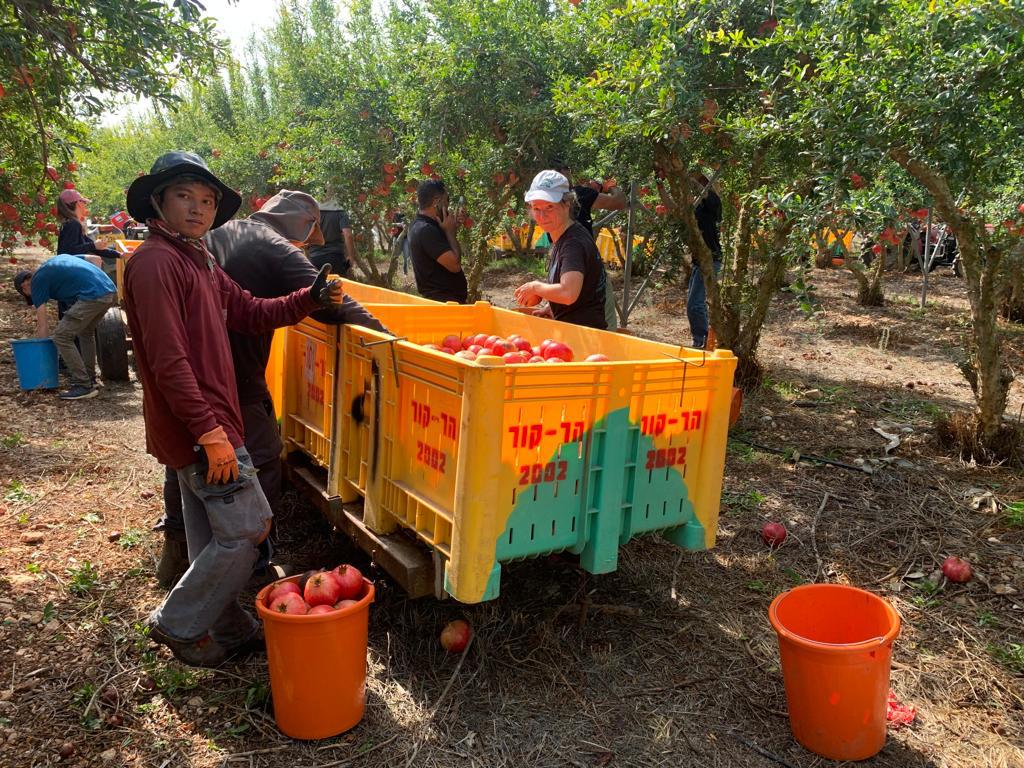
Harvesting Pomegranates in Kfar Yehoshua, Israel
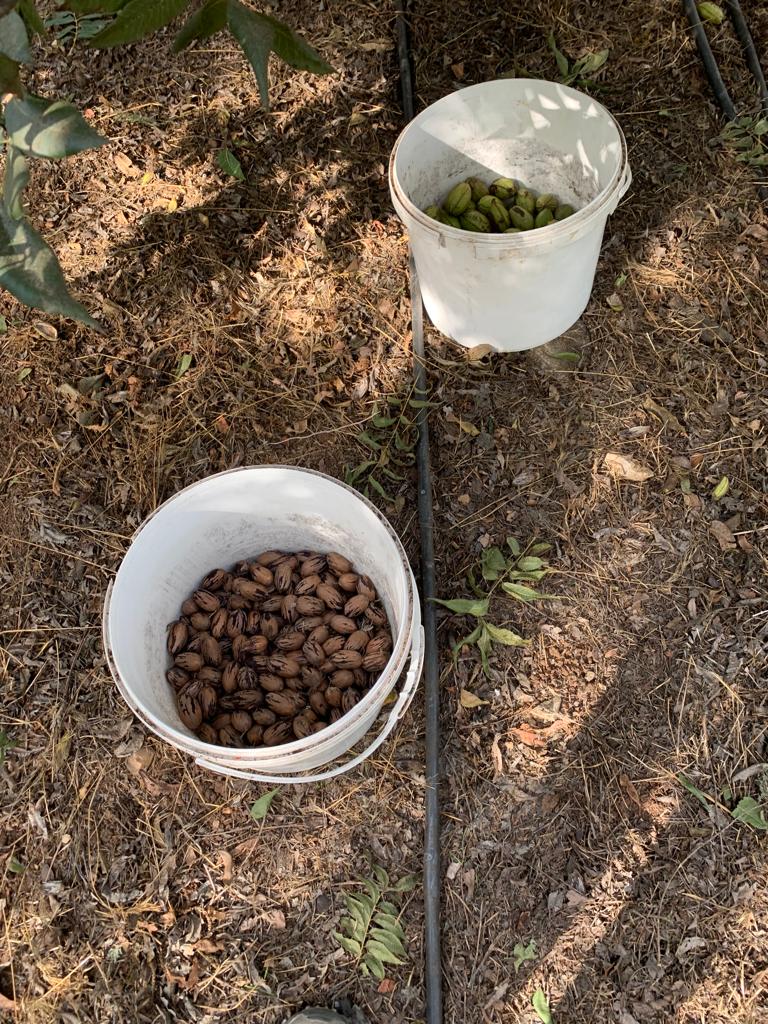
Pecan nuts harvested near Yesud Ha'Maala, Israel
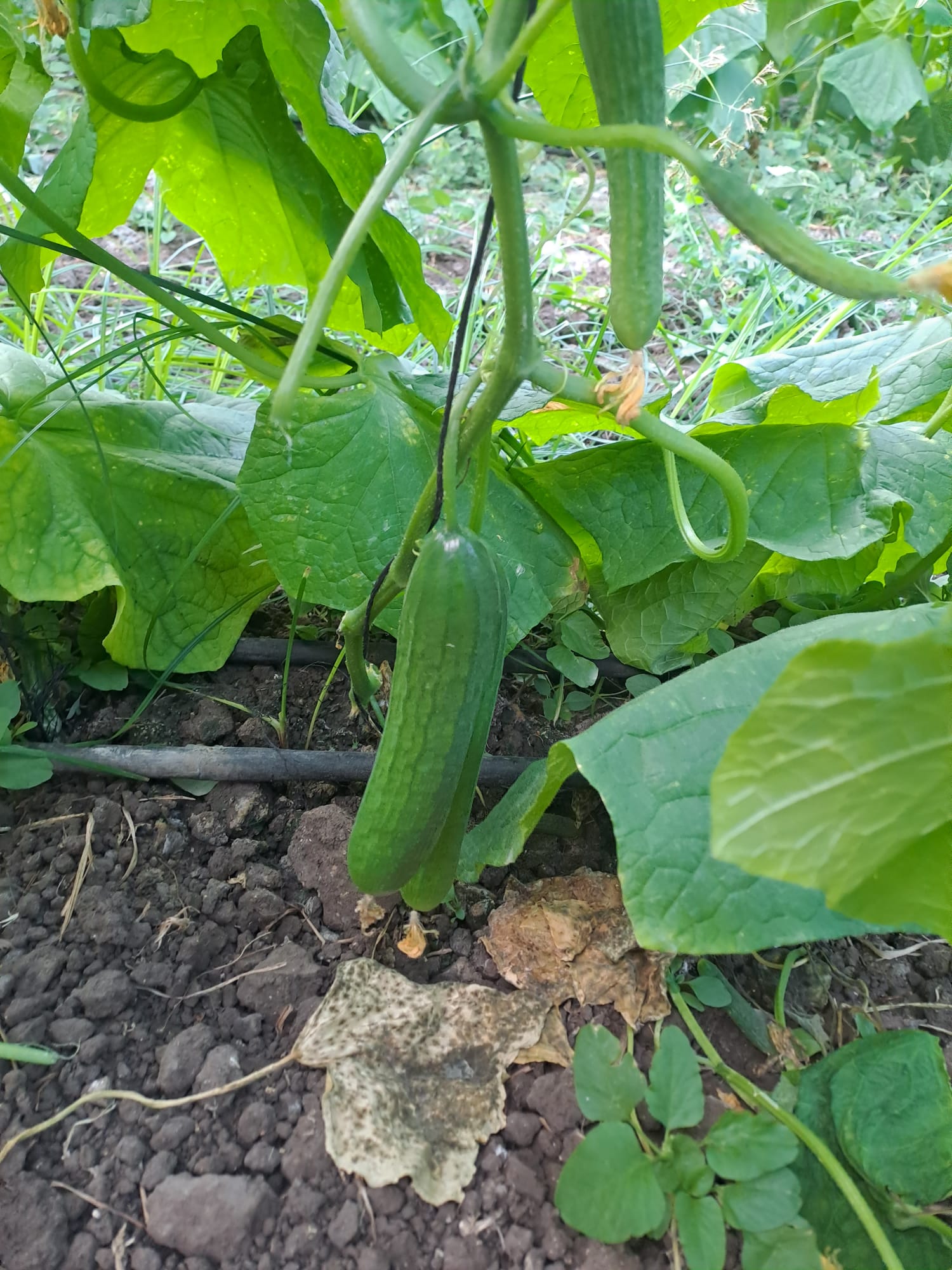
Cucumbers ready for harvesting
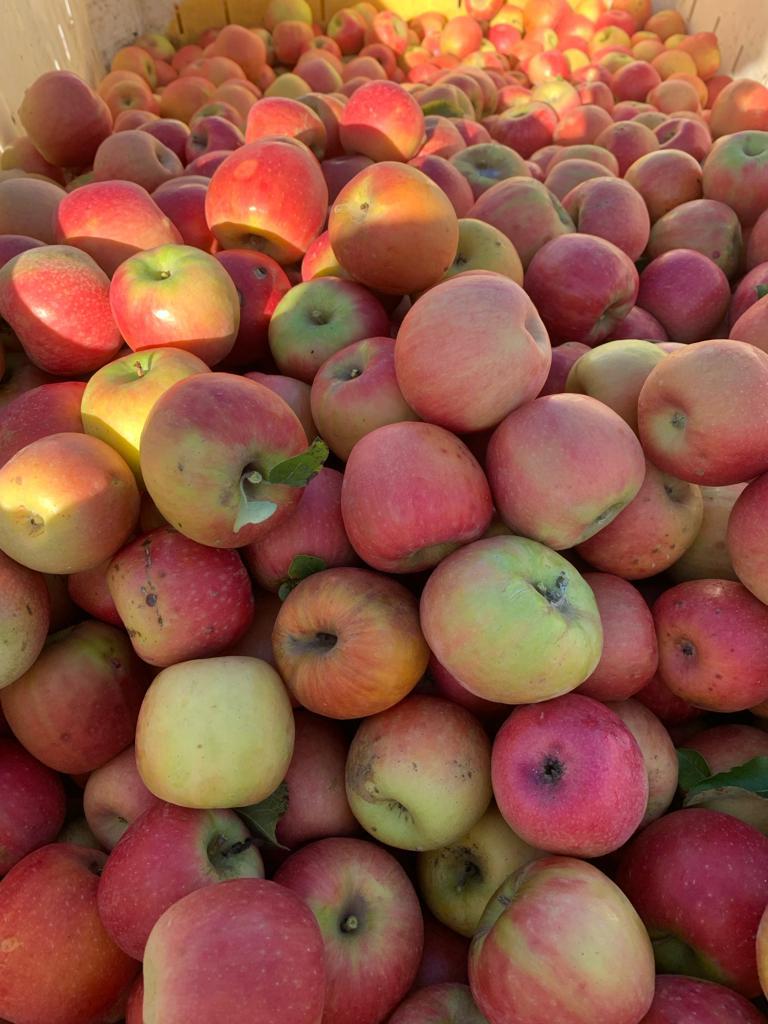
Apples collected in the orchards of Northern Israel
Additionally, they have undertaken crucial, labour-intensive tasks in nurseries, aiding farmers in minimizing losses and preparing for forthcoming harvests. Their primary focus is on the northern region, encompassing communities like Ortal, Matsuba, Yardena and Metulla—agricultural hubs nestled near the northern border with Lebanon.
The work is very physical, with lengthy days that commence early to travel to the farms. Despite the challenges, they derive profound satisfaction from their efforts.
Courage Amidst Conflict: Farmers and Volunteers on the Frontlines
It is also important to emphasize the severe risks involved since the farmers most in need are situated on lands nearest to the borders, exposed to continual military attacks. Access to these areas is strictly governed by the Israel Defence Force, necessitating daily authorization to volunteer there.
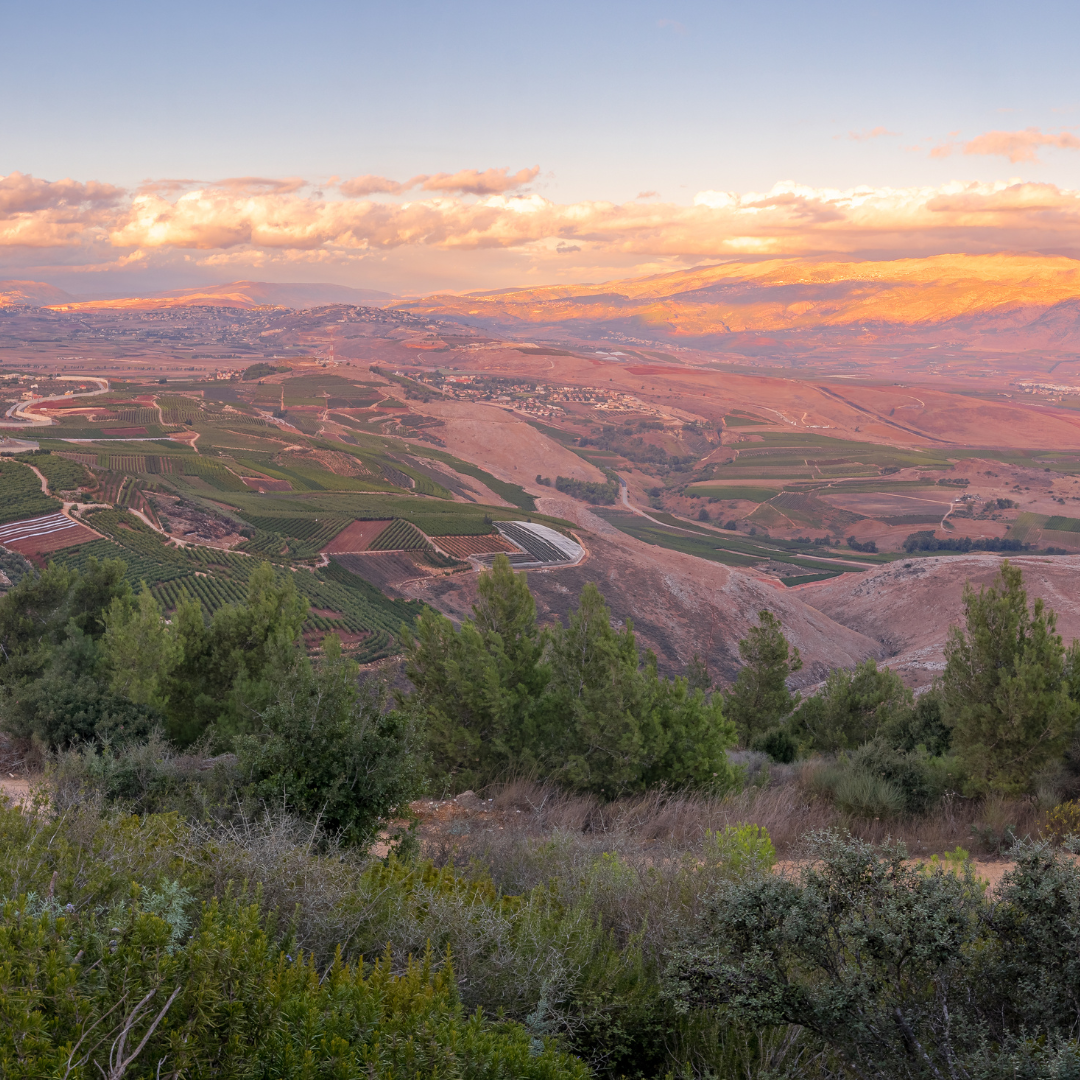
Border between Israel and Lebanon
Often, they arrive and are given a precise time frame to work and adherence to this schedule is crucial for their safety.
Despite working in proximity to danger zones, causing constant concern for their families, both farmers and volunteers find comfort in the protective presence of soldiers, even as the echoes of nearby conflict can be heard around them.
On one occasion, Shiri was denied entry due to intelligence reports deeming fieldwork too hazardous. Subsequently, the fields were subjected to an attack, serving as a stark reminder of the persistent danger. Undeterred by such close calls, Shiri and Neta display remarkable courage by repeatedly returning to what they consider as their duties.
Sad situation for agriculture
Israel is surrounded by hostile nations and faces a unique challenge even in peaceful times to ensure food security for its citizens. Local agriculture plays a critical role in this equation and is a key pillar of national resilience.
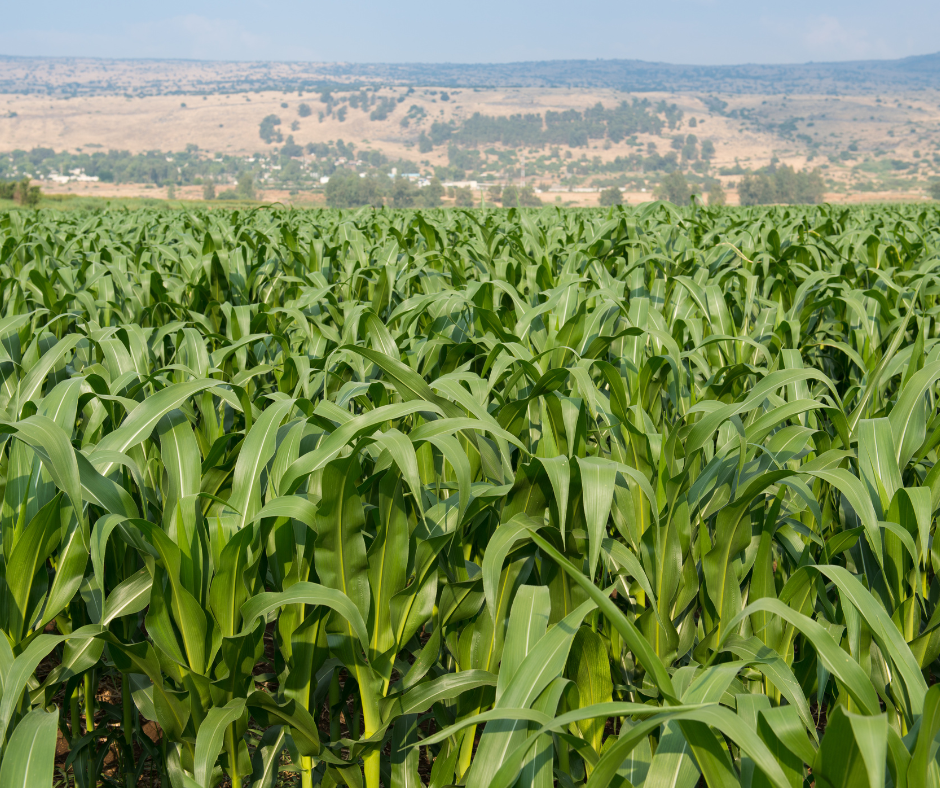
Israel relied almost entirely on local produce before the war and both ladies sadly witness fields of despair before them, as ripe produce is abandoned to rot. Cultures will have to be uprooted before they can start over.
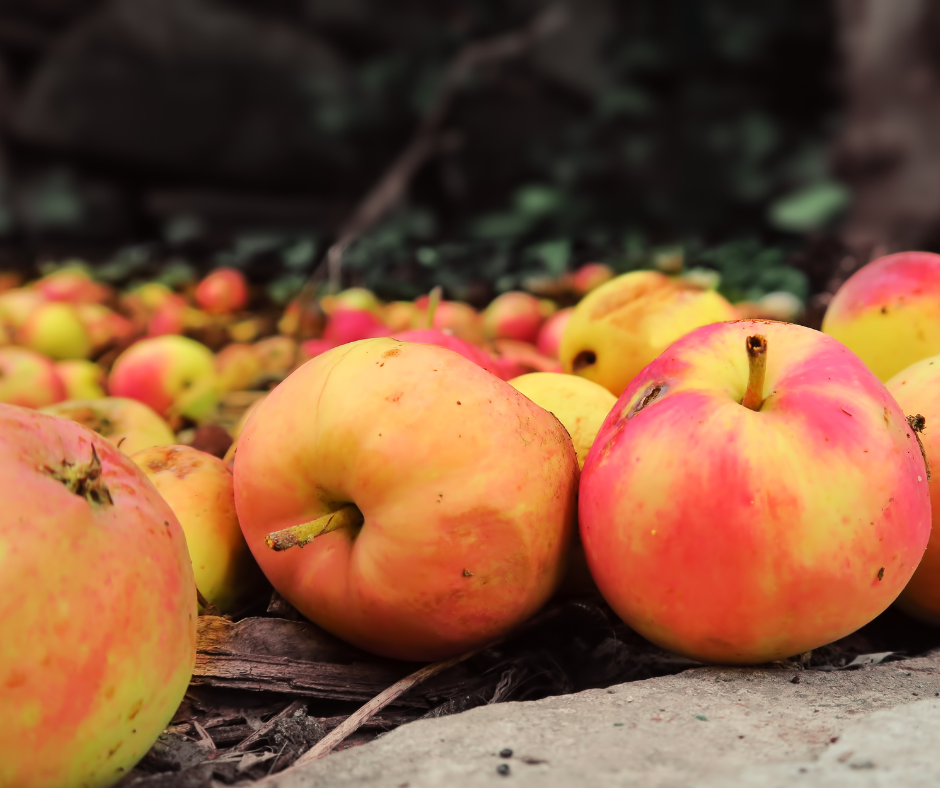
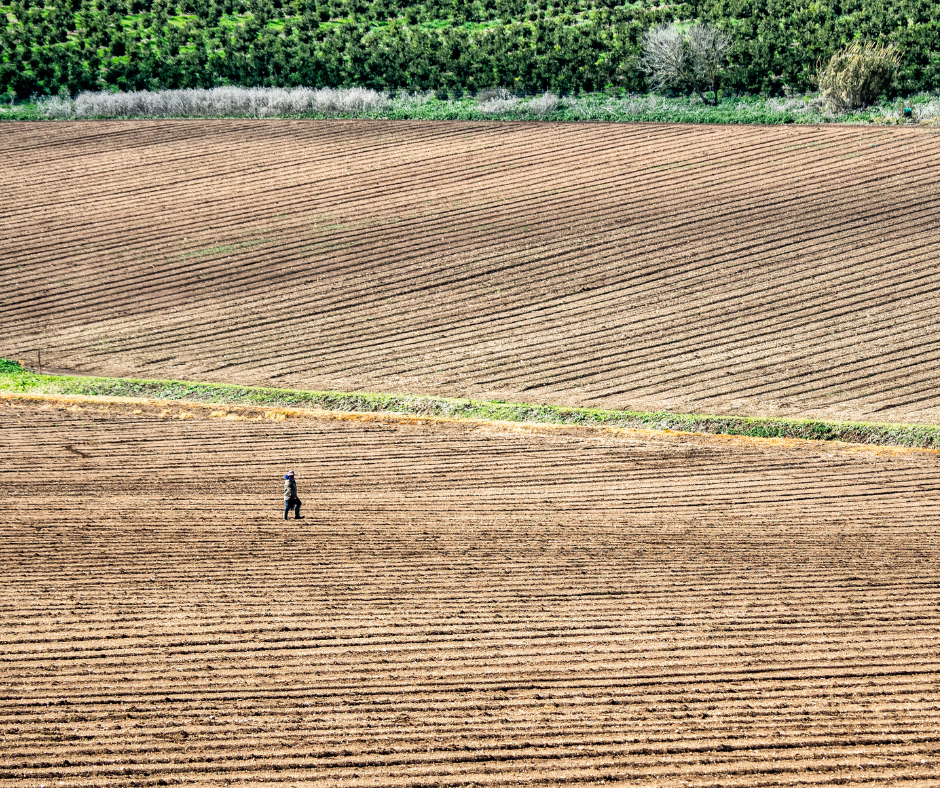
For the farmers, it's a scene of utter anguish, a devastating blow not only to their livelihood but to their very spirit. Despite all, they continue to work and hope…
It's no surprise, then, that farmers are revered for their vital contribution to the country's well-being. Shiri and Neta understand this importance intimately and understand the anguish of the farmers.
The Ministry of Agriculture had to work to import supplies of fresh produce to Israel and ensure food security for Israeli citizens in the immediate aftermath. It is also providing ongoing assistance and compensation to farmers in the field.
The Israeli government is seeking other sources of labour for the country, and recently an agreement was signed with Malawi. The agreement provides employment opportunities for unemployed youth in Malawi and fills the labour gap caused by the war. Further similar agreements are expected to be signed.
Celebrating the Unsung Heroes
Both Neta and Shiri work tirelessly and the impact of the work of all Israel’s volunteers is undeniable. They both appreciate the grateful smiles of the farmers, the tangible results of their labour, and the camaraderie they share with their fellow volunteers. The satisfaction they derive from their contribution is immense, a reward far greater than any monetary compensation.
Even when their bodies ache, their spirits remain high. They find joy in the simple act of working the land, connecting with nature, and witnessing the fruits of their labour firsthand.
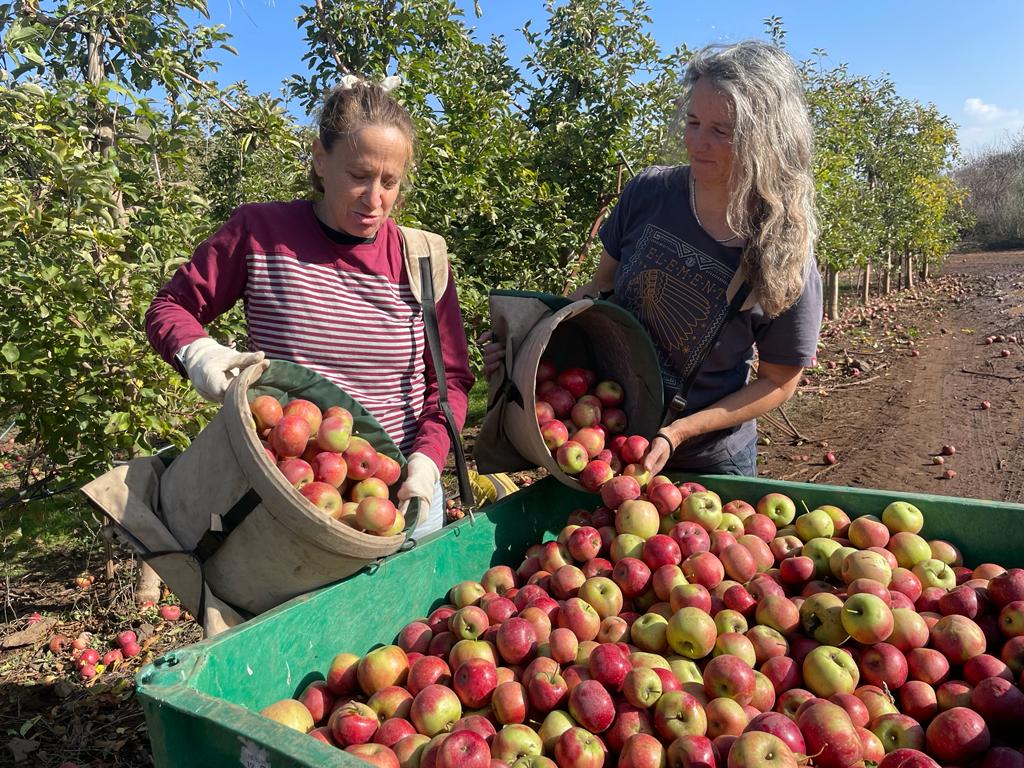
Shiri Salant and Neta Dvir volunteering at Kibbutz Ortal on 11 December 2023
When they will look back on their experience, they won't remember the aches and pains. They will remember the experience shared with new friends, and the profound sense of accomplishment that comes from contributing to something larger than themselves. They will remember the time they played their part in keeping Israeli agriculture alive, ensuring the future of their nation's food security.
So next time we enjoy a fresh, locally grown meal in Israel, let’s take a moment to appreciate the unseen heroes behind it. Volunteers like Shiri and Neta, who dedicate their time and energy to ensuring that Israel's tables remain bountiful, are true pillars of national resilience.

